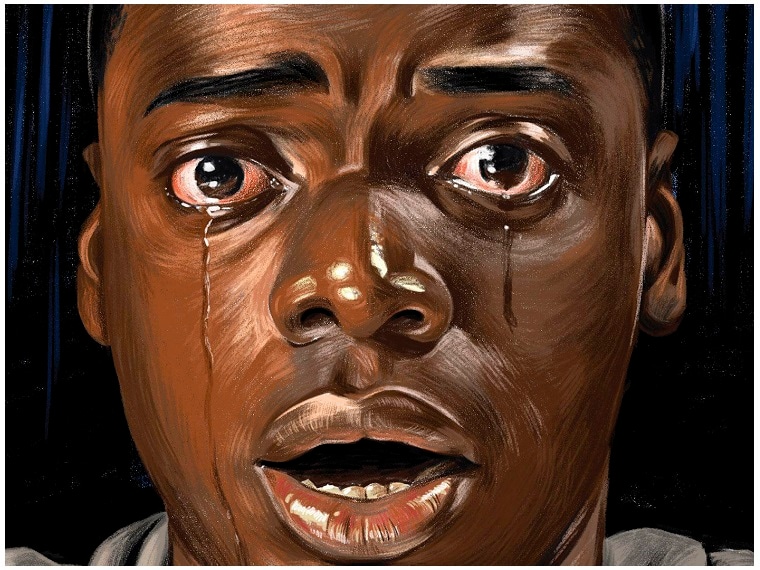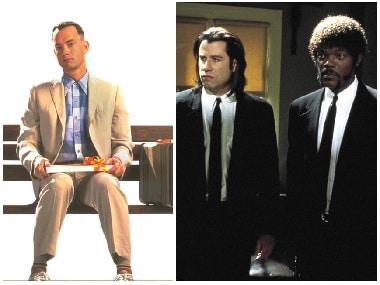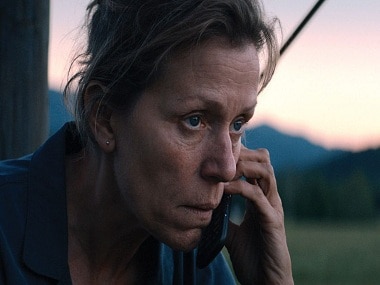Oscar 2018 winner A Fantastic Woman (Una Mujer Fantástica) is a riveting close-up of the trans experience
(Editor's note: This piece has been re-published as Una Mujer Fantástica (A Fantastic Woman) has won the Best Foreign Language film at the Oscars 2018.)
It's a good time to talk about Una Mujer Fantástica (A Fantastic Woman), which won Best Screenplay at last year’s Berlinale and has been nominated for the Best Foreign Film Oscar.
The director, Sebastián Lelio, made a name for himself with Gloria, a dramedy about a divorcée who refuses to give up on love. (Star Paulina García won the Silver Bear for Best Actress at the 2013 Berlin Film Festival.) Una Mujer Fantástica, as the title suggests, is also a female-centric story – except, this time, the heroine (named Marina) is a trans nightclub performer, and played by Daniela Vega, the first openly transgender actress and model from Chile.
This preamble is necessary because this knowledge impacts the way we watch the movie, which is – otherwise – fairly unremarkable. Early on, we see Marina with her much-older lover, a man named Orlando. For her birthday, he gifts her a ticket to the Iguazu Falls. Something about this waterfall suggests doomed romance to international filmmakers. The gay couple in Wong Kar Wai’s Happy Together break up before realising their dream of visiting these falls. As for Marina, Orlando drops dead that very night. The rest of the film shows how badly Marina is treated by Orlando’s ex-wife and son. Only Orlando’s brother shows some compassion, but it’s too little, too late.
There are few surprises in the story, but the film is riveting for extra-textual reasons. Let me lay out some scenes for you. Orlando’s son, with some thugs, abducts Marina. They smother her face with plastic wrap, which distorts her features and makes her look grotesque – this is accentuated when, after being dumped on a side street, Marina looks at herself in the window of a car. Elsewhere, because Marina’s ID card still identifies her as male, a police officer investigating Orlando’s death addresses her using masculine pronouns, and Orlando’s son – who cannot wrap his head around the fact that his father was in a relationship with Marina – asks, “Have you gotten the operation?” She replies, “You can’t ask me that.”
Further humiliations ensue. Orlando’s ex wife tells Marina, “You know, when I married Orlando, I was 38 years old. We were a completely normal couple. Completely. And we had a normal life. So when he came and explained to me... I’m sorry if it sounds crude and direct of me to say this, but the thing is, I really think that this is just perversion... When I look you I don’t know what I’m looking at.” Even the doctor who examines Marina, at the behest of an investigator, is hesitant. Marina slides off the top portion of her surgical gown, and when it’s time for her to remove the bottom half, which she clutches against her privates, the doctor requests investigator to leave. The investigator refuses.
Actors often get called out for playing people they aren’t. Straight actors get called out for playing gay. Guy Ritchie’s upcoming Aladdin was embroiled in a controversy when reports surfaced that white actors were being “brown-faced” in order to blend into the crowd scenes. Even with trans characters, Jaye Davidson (a gay man) played Dil in The Crying Game, and Jared Leto (whose rumoured girlfriends include Cameron Diaz and Katy Perry) played Rayon in Dallas Buyers Club. Let’s not get into the whole identity-appropriation debate. At some level, every character is “someone else,” and if we were to take political correctness to the extreme, then rich actors shouldn’t be playing poor people, and so on.
But Una Mujer Fantástica wouldn’t be the film it is without a trans actor playing this trans part. When asked how much of herself she brought to the role of Marina, Daniela Vega said, “My contribution to the character was bringing the most natural part of myself to her, something that has never been seen before in a movie. It’s a lot more genuine or authentic, for instance, that an African-American plays the role of an African-American in a movie than a white person painting his or her body to re-create a character that is going to be an African-American. The same thing goes for [a trans actress] playing this character, Marina.”
I’d argue that it’s more than that. Let’s take 12 Years a Slave, which has black actors re-enacting a horrifying chapter from history. We have been seeing black actors on screen for decades. We’ve seen them play rich people, poor people, good people, bad people, best friend, comic relief – the gamut. So what we notice in 12 Years a Slave is how good the actors are, how effective at conveying their pain to us, and not necessarily how black they are. Put differently, we have become so accustomed to seeing black actors on screen that we react to the characters they play rather than who they are.
But trans actors are rarer on screen than in television, especially in such a central role, and I found it impossible to watch Una Mujer Fantástica without thinking about the fact that we are watching a real-life trans person being put through a series of on-screen humiliations . When Marina walks into a sauna, through the women’s section and ends up in the men’s, I felt I was watching the actor as much as the character. (Perhaps this is how non-black audiences felt in the sixties and seventies, when black actors first started making their presence felt in major roles.) When Jaye Davidson undresses in The Crying Game, I watched it like just another instance of [male] nudity, but when Marina is asked to strip, it feels... unprecedented, real.
Fifty years hence, someone watching a trans character played by a trans actor probably won’t bat an eyelid, but for now, the director’s (and the actress’s) refusal to play safe by showing (and not just suggesting) nudity – not just physical but also emotional – feels sensationally radical. “I didn’t understand much [about trans people]” the director said in an interview. “That’s one of the reasons why I felt attracted to making this film. It was an opportunity to explore unknown territories and get beyond my own ignorance...” He could be speaking for some members of the audience as well. I hope filmmakers keep finding interesting parts for Daniela Vega, maybe even that of a heroine in a romance. That would really be fantastic.
Published Date: Mar 05, 2018 11:00 AM | Updated Date: Mar 05, 2018 11:15 AM



